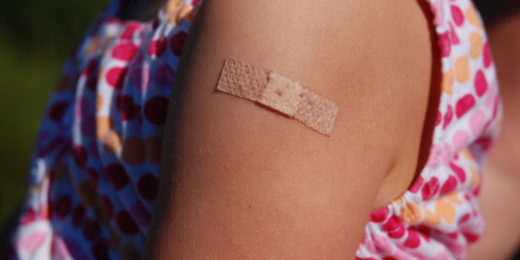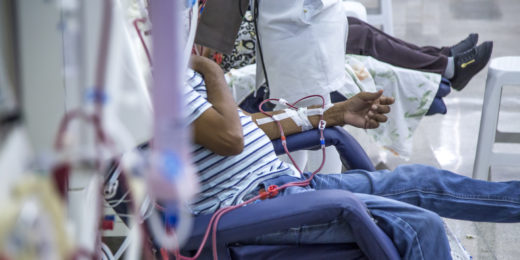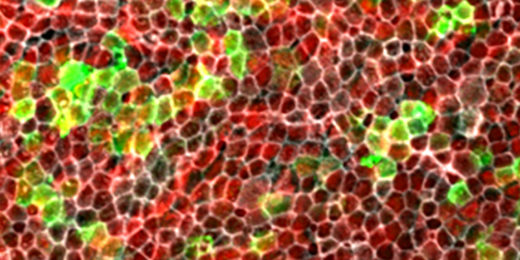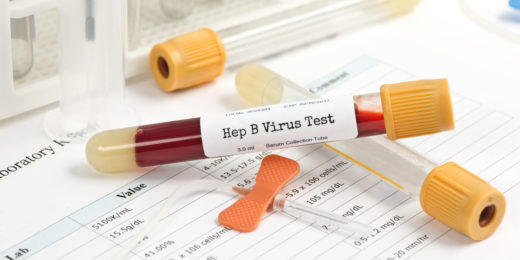Stanford psychiatrist weighs in on how the United States as a community suffers from widespread, prolonged grief, and what we can do.
Category: Infectious Diseases
A new approach to vaccinations: 3D printed patches
Researchers have created a new prototype technology to administer vaccines: a 3D printed patch that packs a punch.
Does free speech protect COVID-19 vaccine misinformation?
Stanford researcher discusses whether free speech rights fuel COVID-19 vaccine misinformation and how that misinformation can be stopped.
Physician explains how COVID-19 mutes sense of smell
Physician-scientist weighs in on how the virus behind COVID-19 hampers your sense of smell and, sometimes, taste.
Endemic: What it might mean for masks, COVID-19 shots and more
Stanford experts discuss what ‘endemic’ means in the context of biology, masking, vaccines, and mental and behavioral health.
Fighting childhood infectious disease, lessons from COVID-19
Stanford Medicine pediatric infectious disease researcher describes her work in childhood infectious disease and lessons from the pandemic.
Vaccines provide broad protection against COVID-19, scientists say
According to a Stanford study, vaccines against COVID-19 are better than infection at generating antibodies to recognize new viral variants.
How COVID-19 has hurt health care workers’ mental health
Stanford clinical psychologist discusses how the mental health of health care workers has been impacted by the pandemic.
Research explores how scammers take advantage of COVID-19
Pandemic con artists have exploited loosened regulations and people's fears to try to scam insurers and patients out of billions of dollars.
Protecting at-risk patients by tracking COVID-19 antibodies
According to a study, antibodies circulating after SARS-CoV-2 vaccinations wane rapidly in people who are receiving dialysis.
Top 5 Scope stories of 2021
From the genetics of COVID-19, to cancer, to tonsils, this story is a wrap up of Scope's most read stories of 2021.
New genetics tool helps guide dosages of tuberculosis drug
Researchers design a test that predicts how quickly patients metabolize a standardized tuberculosis drug, aiming to increase efficacy.
Pandemic Puzzle: Vaccinating children
A Stanford Medicine researcher discusses COVID-19 vaccination for children and why it's important for them to get the shot.
COVID-19 can infect the inner ear
Researchers say anyone with new on-set hearing loss, tinnitus or vertigo, with exposure to COVID-19, should be tested and monitored.
Why are smokers at an increased risk for severe COVID-19?
Tobacco smoke blocks airway cells from making a protein that protects against infection by the virus that causes COVID-19.
Bill, supported by Stanford doctor, guards against hepatitis
A Stanford Medicine doctor helped write and support legislation to enable free hepatitis B and C screenings for those who request it.

















